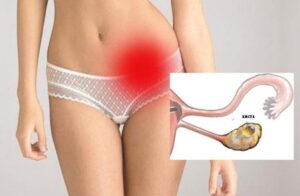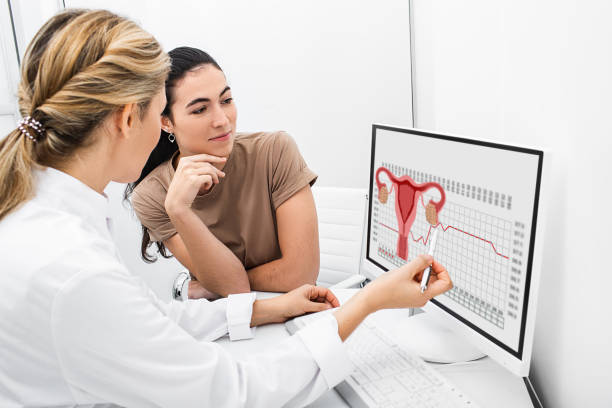They are fluid-filled sacs formed in the ovaries. They occur as a result of hormonal changes or abnormalities in ovarian functions. ovarian cyst Symptoms may include abdominal pain, bloating, menstrual irregularity and pelvic discomfort. Most of the time they go away on their own, but they may carry a risk of enlargement or complications. Ultrasound or other imaging methods are used for diagnosis. Treatment varies depending on the symptoms, the size of the cyst, and the patient's condition.
What are the Symptoms of Ovarian Cyst?

Large cysts may cause a feeling of bloating or fullness in the abdomen. It can put pressure on the intestines, causing digestive problems such as indigestion or constipation. It may create a feeling of heaviness or fullness in the abdominal area. Ovarian cyst symptoms It may be associated with other health problems. That's why it's important to consult your doctor if you have symptoms. Your doctor may perform a physical examination to determine if there is a possible cyst. He or she may order ultrasound or other imaging tests if necessary.
Ovarian Cyst Risk Factors
It can be seen in women of all ages, but is generally more common in women of reproductive age. Women with irregular menstrual cycles may be at risk. in his family ovarian cyst Women with this condition are more likely to experience this condition in their own lives. Women who have never been pregnant may be at risk of developing the condition. The use of birth control pills may reduce cysts. However, in some cases, the use of birth control pills can also promote cyst formation.
Hormonal imbalances, especially conditions such as polycystic ovary syndrome, can increase its occurrence. Smoking may increase the risk. Women who are overweight or obese may be at risk. Endometriosis is a condition in which uterine tissue grows outside the uterus. This condition may increase the formation of cysts in the ovaries. ovarian cyst It is usually harmless. Still, if symptoms occur or the cyst grows, they should be monitored by a doctor. Therefore, if you have any symptoms or concerns, it is important to consult your gynecologist.
Ovarian Cyst Treatment Methods

Open surgery may be required for larger cysts and involves opening the abdomen. In some cases, the fluid in the cyst can be drained by aspiration. However, this method carries the risk of cyst refilling. In rare cases, if cancer is suspected or cysts are very large, one or both ovaries are surgically removed. The treatment option is determined according to the patient's age, health status, symptoms and cyst characteristics. It is important to see a gynecologist or a women's health specialist for diagnosis and treatment.






